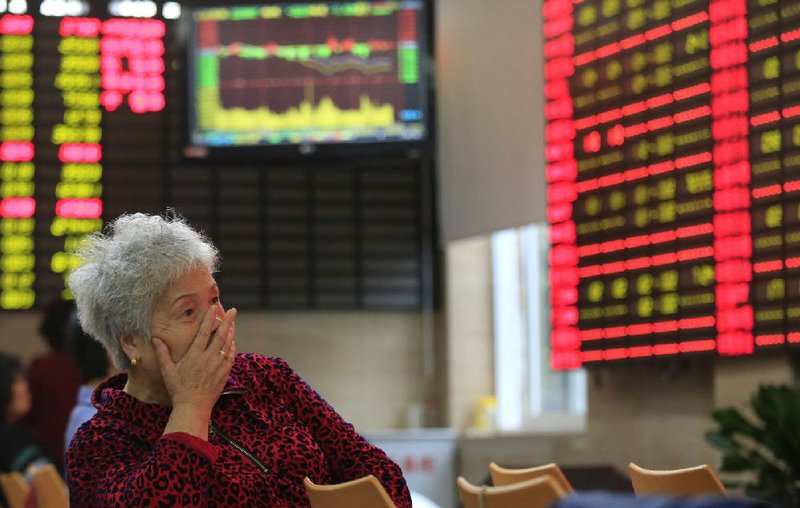BEIJING - China said Friday it is ending controls on bank lending rates in a move to create a market oriented financial system to support economic growth.
Advocates for change see an overhaul of China’s interest-rate policy as one of the most important changes required to keep its growth strong. Banks lend mostly to state industry rather than the entrepreneurs who create China’s new jobs and wealth. Allowing banks to negotiate their own rates with borrowers could channel more credit to private enterprise.
“This reform is to further develop the basic role of market allocation of resources - an important measure to promote financial support for the development of the real economy,” the central bank said in a statement announcing the change which takes effect today.
The scrapping of controls on lending rates is the first major economic change by the government of President Xi Jinping, who took office this year. Xi and other leaders have promised an array of changes but until Friday no details had been released.
The end of the controls is likely to lead to banks raising rates on loans. That would mean an influx of money to already cash-rich lenders, which might help set the stage for another change - raising the low rates paid to savers. There was no word Friday on when that change might occur.
Beijing has long used its banks to subsidize state industry with low-interest loans. Savers who had few alternative places to put their money were paid low rates on deposits that in recent years failed to keep up with inflation, meaning Chinese families lost money by leaving it in the bank.
That has suppressed household spending, which is among the lowest in the world as a percentage of the economy, and held back efforts to shift the basis of China’s growth from exports and investment to more self-sustaining domestic consumption.
Chinese families looking for a better return on their savings have shifted money into more speculative investments in stocks and real estate, helping to fuel a boom in prices of both.
China’s economy grew 7.5 percent in the second quarter from a year earlier and is at risk of the weakest expansion in 23 years. Friday’s announcement builds on pledges by Premier Li Keqiang to expand an overhaul of interest rates, tagged by the World Bank and the International Monetary Fund as a priority in financial change.
Lu Ting, head of Greater China economics at Bank of America Corp. in Hong Kong, said the announcement seemed a “token” move after the interbank liquidity squeeze in June and “a real move” will involve deposit rates.
“We do not think this is a new policy initiative in response to the growth slowdown,” said Zhang Zhiwei, chief China economist at Nomura Holdings Inc. in Hong Kong. “Credit and monetary growth will remain weak” in the second half of the year amid deleveraging, he said.
When Li took office in March, he pledged to open the economy to market forces and strip power from the government. He said at the time that the process would be “very painful and even feel like cutting one’s wrist.”
A key Communist Party meeting later this year may tackle changes to the financial sector, fiscal system, land tenure, prices, income distribution and household registration.
Information for this article was contributed by Joe McDonald of The Associated Press and Xin Zhou, Nerys Avery, Stephen Tan, William Bi, Aipeng Soo, Alfred Cang and Jing Jin of Bloomberg News.
Business, Pages 27 on 07/20/2013

